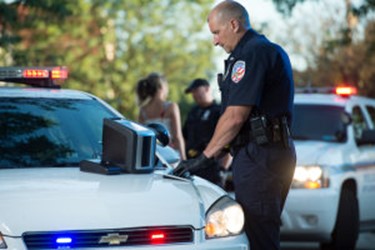- WE SAVE LIVES
- info@wesavelives.org

Kelly DeHay Will Speak at “Whiteleather”
February 9, 2017
We Save Lives Supports Texas SB31 & HB62
February 13, 2017Vermont H.237 allows law enforcement to use saliva testing on operators of motor vehicles, reasonably suspected to be drug-impaired.
Dear Representative Potter:
I am writing you on behalf of We Save Lives, an international organization with more than 50 partners including, Stop DUID, DUID Victim Voices, Stop Drugged Driving, the National Safety Council, the Center for Forensic Science and Research Education and the Institute for Behavior and Health. We Save Lives supports H.237 that will help remove drugged drivers from the roads. While drunk driving continues to be addressed by legislators, 20% of vehicular crashes are caused by drugged driving. In the United States, this translates into an estimated 8,600 deaths, 580,000 injuries, and $33 billion in property damage each year (Institute for Behavior and Health).
What you may not know but should is that:
- Drugged drivers frequently escape prosecution which means –
- No conviction which means –
- No punishment or accountability which means –
- No rehabilitation which means –
- No justice for the victim/survivor and
- No protection for society
However, there are methods of combatting this crime and one major way is through roadside oral fluid testing. These devices halt drugged drivers in their tracks by providing law enforcement the tools they need to test a suspicious driver quickly, easily and effectively, thereby providing more protection for the innocent driver on the roadway. We Save Lives does not endorse any particular product.
If we limit the specimens that can be collected to only blood, we could be missing the opportunities to utilize new and cost-efficient resources available to law enforcement. Oral fluids are becoming a popular option for law\enforcement because the test is less intrusive, and possibly more cost-effective than other standard forensic testing procedures. It eliminates cheating, is non-invasive and it can be conducted at roadside. Marijuana’s psychoactive agent (THC) is cleared from blood so rapidly that blood tests never represent the blood THC level at the time of arrest. Oral fluid testing can be more reliable than blood testing because oral fluid samples can be taken much more quickly than blood samples that can take up to two hours after initial stop. Oral Fluid testing is currently being utilized in a number of countries, including Great Britain, Australia, Germany, Switzerland, France and Belgium and Canada has pending legislation authorizing the use of these devices. They are also being used or evaluated in a number of states including California, Nevada, Arizona, Vermont, Tennessee, Colorado and Michigan.
The City of Los Angeles began a pilot project utilizing driving under the influence (DUID) cases. According to an article entitled Collecting Oral Fluid Evidence in Drugged Driving Cases by Phil Rennick, California TSRP and Janette Flintoff, Deputy LA City Attorney, “The results are measurable: cases filed with oral fluid evidence are pleading out earlier with this additional evidence, which is available at the time of filing, contrasted with cases awaiting blood test results from the lab.” Oral fluid provides officers the opportunity to collect critical evidence close to the time/at the initial contact when the objective signs of impairment are present.
The National Highway Traffic Safety Administration (NHTSA) has been using these devices since 2007 in National Roadside Surveys and is now providing grant funding for states who wish to purchase them.
We are asking that the legislation provide our law enforcement officers with another tool in their tool kit to help eliminate drugged driving and make our roads safer for our families, friends and loved ones.
Thank you,
Candace Lightner
Founder and President, We Save Lives
Founder MADD
We ask residents of Vermont to download this letter and send it to their representatives to voice their support for this bill.
From Vermont NPR:
Law enforcement officials are urging lawmakers to establish a roadside system to determine if a driver is operating a car under the influence of drugs. The system uses a saliva test that can measure levels of marijuana and seven other commonly used drugs. But the potential testing raises civil liberties concerns.
Public Safety Commissioner Keith Flynn is a strong supporter of the saliva testing system. He says his department recently conducted a three-month trial of this test and it achieved a success rate of 97 percent with no false positives.
Flynn says full implementation of this system is definitely needed. That’s why he wants the Legislature to approve this new approach.




